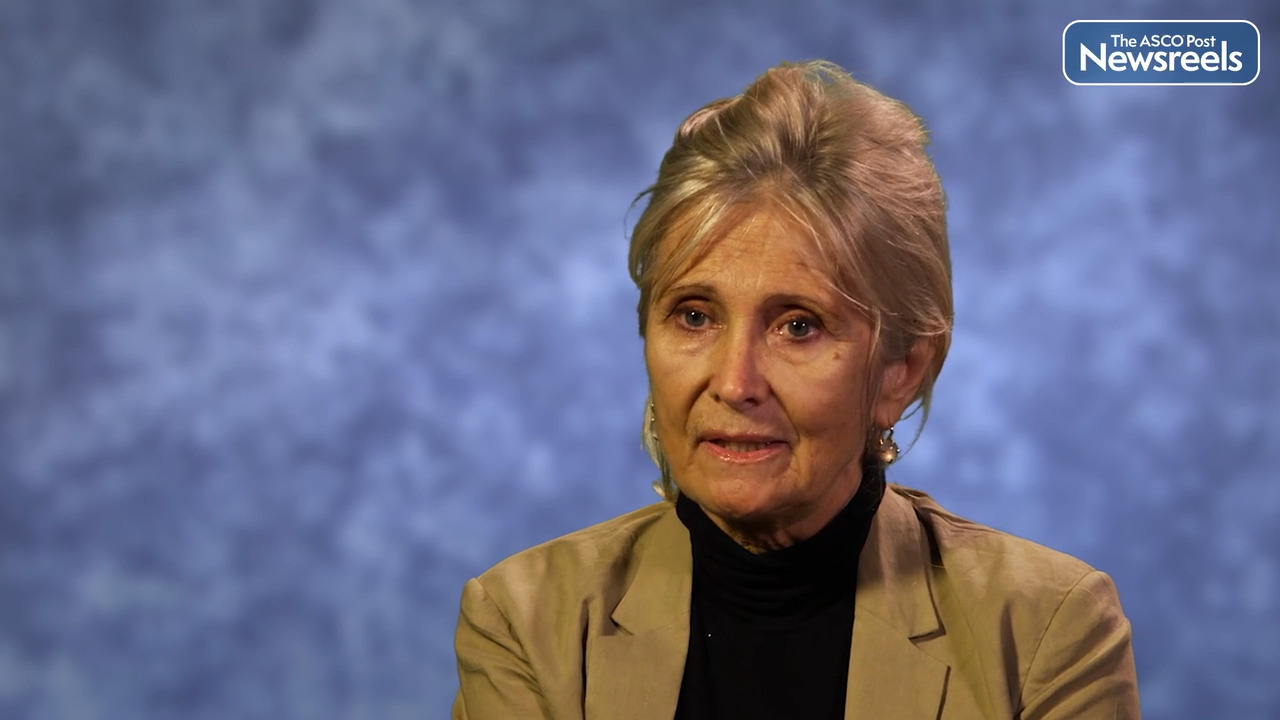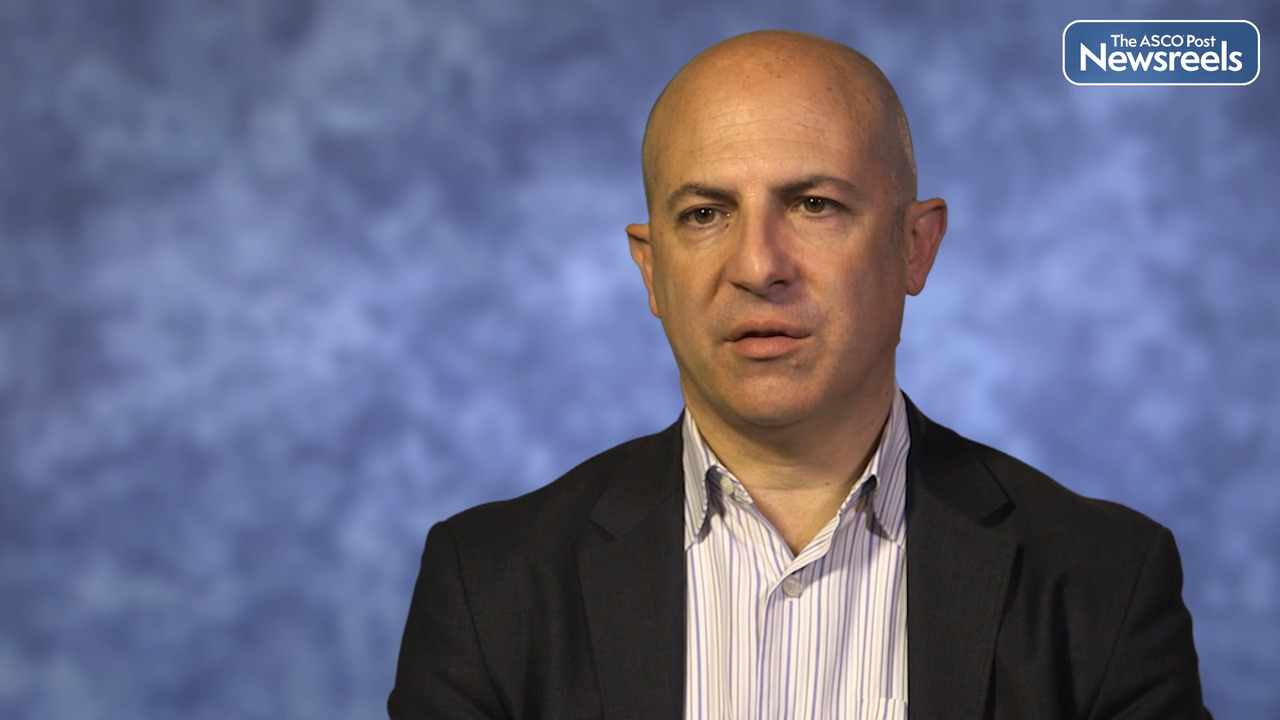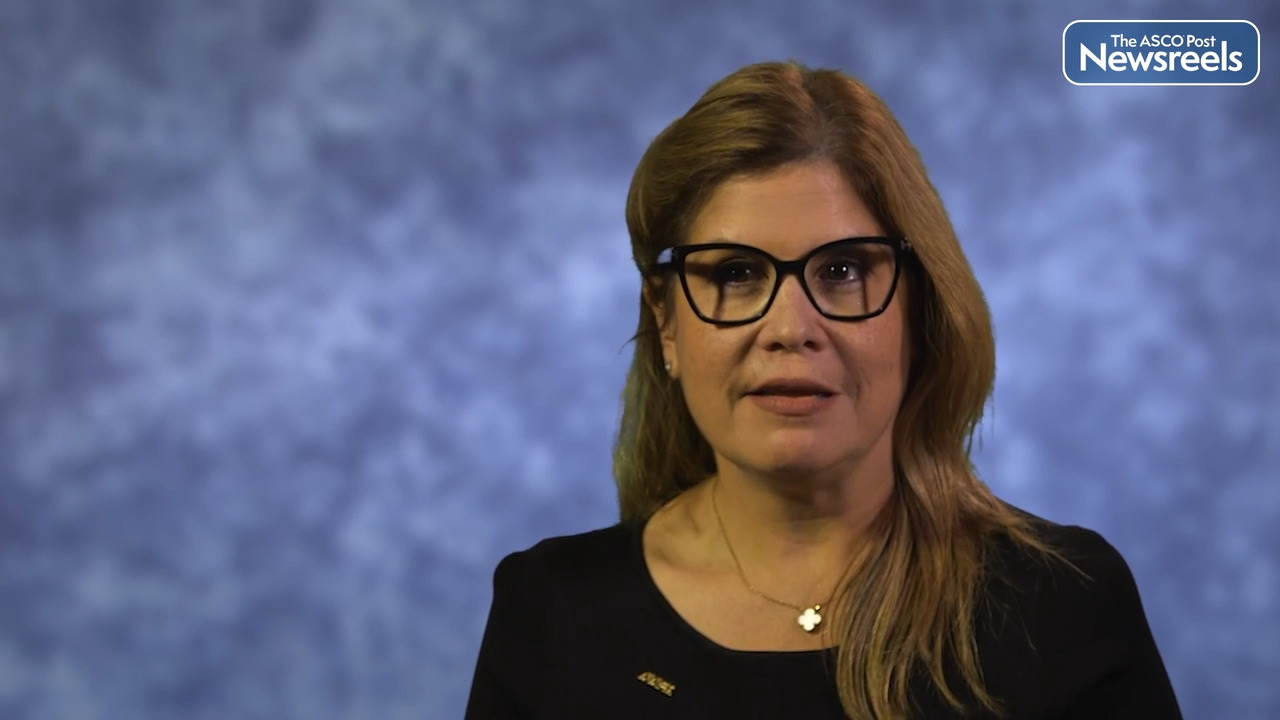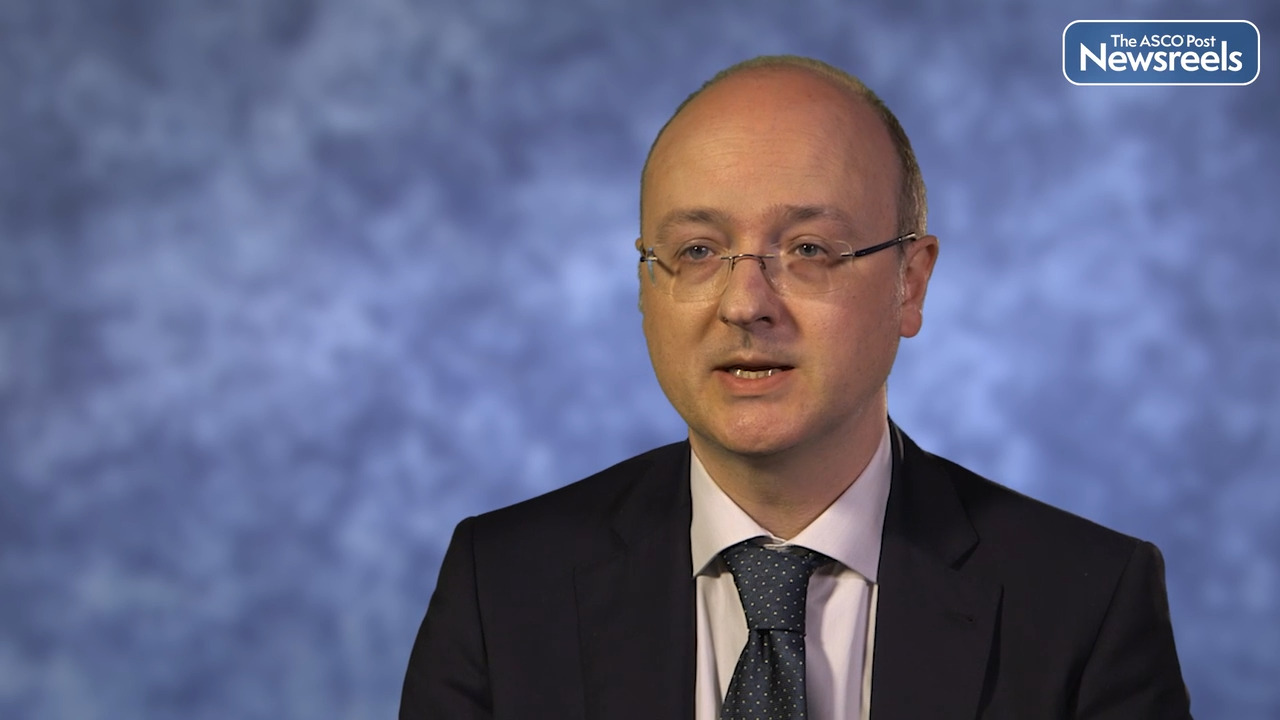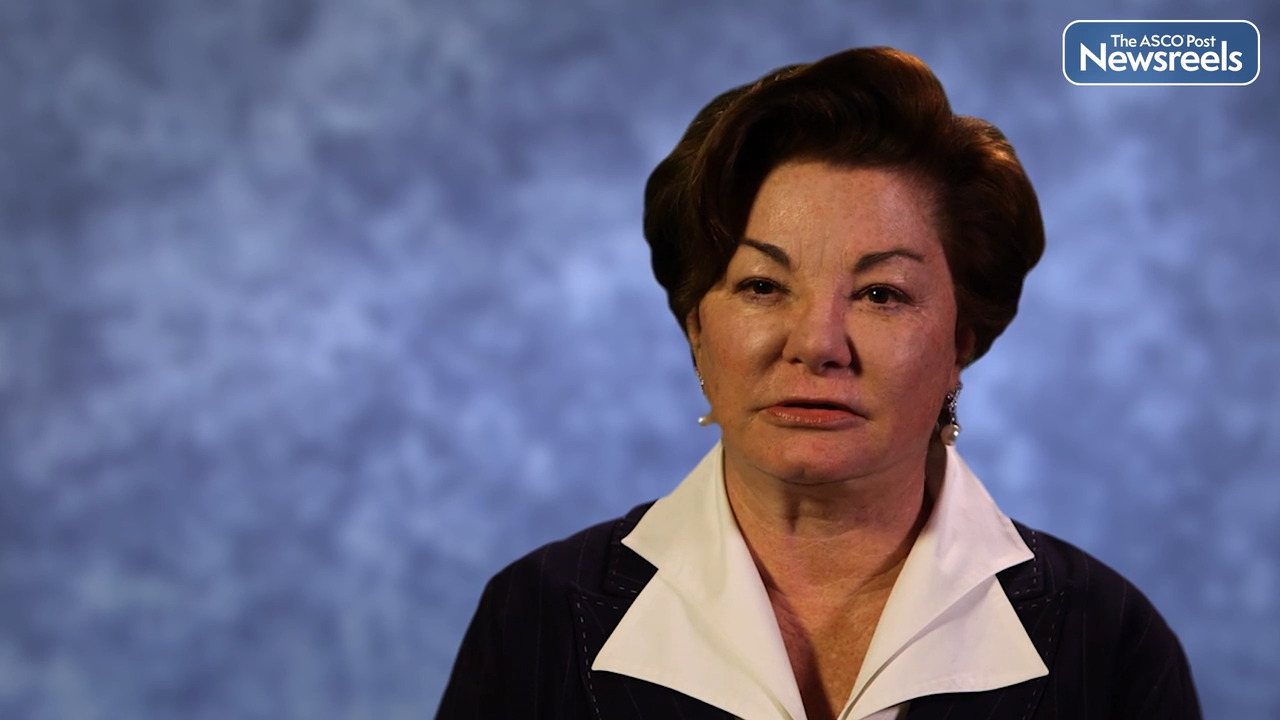Nickolas Papadopoulos, PhD, on Multicancer Early Detection: Opportunities and Challenges
AACR Annual Meeting 2022
Nickolas Papadopoulos, PhD, of the Sidney Kimmel Comprehensive Cancer Center, discusses early detection as the key to reducing cancer mortality and the lack of tests for many malignancies. Liquid biopsies have the potential to screen for various tumor types, albeit with varying levels of sensitivity. Dr. Papadopoulos discusses his research on such blood tests, following patients prospectively to find the best combination of genetic and epigenetic biomarkers to increase sensitivity (Abstract PL02).
The ASCO Post Staff
Silvia C. Formenti, MD, of Weill Cornell Medicine, discusses research on the best way to integrate radiotherapy with immune modifiers, which might require changes in standard radiation oncology practices. Variables such as the type of treatment fields, the inclusion of draining nodal stations, the degree of exposure of circulating immune cells, the type of dose fractionation, and the timing of radiotherapy during immune checkpoint blockade all can affect the success of immunoradiotherapy combinations (Abstract SY43).
The ASCO Post Staff
Zev Wainberg, MD, of the University of California, Los Angeles Medical Center, discusses preliminary data on the safety and efficacy of TTX-030, an anti-CD39 antibody, in combination with budigalimab and FOLFOX for the first-line treatment of locally advanced or metastatic gastric or gastroesophageal junction adenocarcinoma. The study suggests the regimen may prove to be of benefit as a first-line treatment, regardless of combined positive score status (Abstract CT015).
The ASCO Post Staff
Marcia R. Cruz-Correa, MD, PhD, of the University of Puerto Rico Comprehensive Cancer Center, discusses a way to possibly transform cancer outcomes by teaming up basic scientists, clinical researchers, and community advocates to work together, decode the complexity of cancer, and find points at which to intervene in the development of tumor cells. One strong focus is on communities disproportionately affected based on their genomic ancestry, geographic location, and ethnicity (Abstract PL06).
The ASCO Post Staff
Iván Márquez-Rodas, MD, PhD, of Spain’s Hospital General Universitario Gregorio Marañón, discusses final results of the phase II SPOTLIGHT203 study of systemic pembrolizumab in combination with intratumoral BO-112 for patients with advanced melanoma refractory to anti–PD-1–based therapy. The regimen achieved an overall response rate of 25% and a disease control rate of 65% (Abstract CT014).
The ASCO Post Staff
Cheryl L. Willman, MD, of the Mayo Clinic Comprehensive Cancer Center, discusses the profound cancer health disparities among Native Americans, exacerbated by low rates of screening and limited access to care. Dr. Willman is heading an effort to promote community engagement in comprehensive genomic sequencing with the hope that researchers will discover novel mutations and genome-wide mutational signatures that can ultimately be translated to improved screening and therapy in this population (Abstract PL03).
